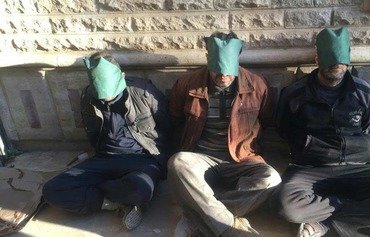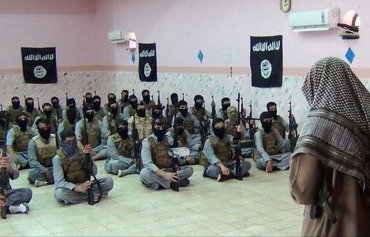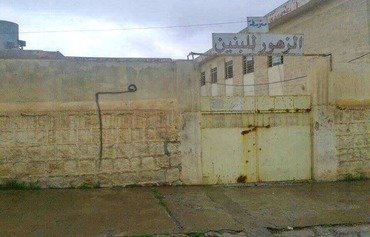Iraqi forces working to clear "Islamic State of Iraq and the Levant" (ISIL) sleeper cells from eastern Mosul have received a groundswell of support and assistance from local residents, officials tell Diyaruna.
Social media posts from outlets such as Al-Qayyarah News that urge residents to turn in ISIL elements have attracted hundreds of positive comments.
Some outlets have posted photographs of Mosul residents who collaborated with ISIL or joined its ranks over the past two years as part of a media campaign that calls on locals to turn them in.
Security forces have been working with local residents to single out ISIL elements hiding in the eastern side of the city, Joint Operations Command spokesman Brig. Gen. Yahya Rasul told Diyaruna.
Iraqi forces, represented by army regiments and the Ninawa police and supported by military intelligence efforts, have managed to detain dozens of ISIL elements, he said.
These individuals have been handed over to the authorities for further questioning as they await trial in Iraqi courts, he said.
Active intelligence apparatus
Iraqi security authorities have an active intelligence apparatus in Mosul and have been using corroborated intelligence to capture ISIL sleeper cells, Rasul said.
According to media reports, there are hundreds of informants inside Mosul, helping security forces target ISIL positions and movements and prevent car bomb attacks or incidents with hidden improvised explosive devices (IEDs).
"Some ISIL elements who had been living in villages on the outskirts of Mosul were arrested, while others fled because they could no longer hide among these tight-knit communities," said Ninawa tribal mobilisation leader Sheikh Khalid al-Sabah al-Jubury.
Many moved to more populous residential areas in the western side of the city where they are not easily recognised and are moving around using false IDs, he told Diyaruna.
" Weak security in the eastern side of the city immediately after its liberation enabled some ISIL elements to slip through," he said, "as there were only one or two checkpoints in each area and security measures were not fully established."
"After recent attacks in the eastern side of Mosul, however, security measures have been tightened and more ISIL elements have been detained," he said.
Lingering fear of ISIL
Mosul residents remain fearful that ISIL will engage in acts of retaliation if they reveal their identities to the police, al-Jubury said.
The group has struck fear into the hearts of local residents since its fighters overran the city in June 2014, he said, kidnapping and assassinating civilians.
"It will be essential to break this barrier of fear so that locals can work more effectively with the security forces in providing intelligence that will lead to the capture of the group’s sleeper cells," he said.
"Identities have been revealed and there is nowhere to hide," Ninawa provincial council member Nayef al-Shimmari told Diyaruna.
Over the past two years, he said, ISIL elements were free to roam without covering their faces, and people knew them by name and face.
He called for the removal of anyone found to belong to the group and for the formation of a special court to try anyone arrested for belonging to ISIL.

![Iraqi forces patrol the Arabi neighbourhood north of Mosul after recapturing it from the 'Islamic State of Iraq and the Levant' on January 22, 2017. Local residents have been providing information to security forces about jihadist sleeper cells in the city. [Ahmad al-Rubaye/AFP]](/cnmi_di/images/2017/03/01/7379-000_ki4j1-600_384.jpg)






